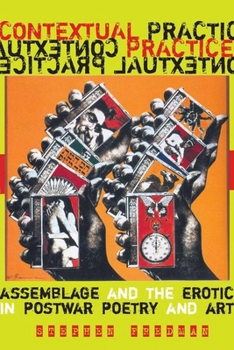Contextual Practice: Assemblage and the Erotic in Postwar Poetry and Art
Fredman makes the original argument that some of the most innovative works of poetry and art in the postwar period (1945-1970) engaged in a "contextual practice," a term that refers both to a way of making art characterized by assemblage and to a new relationship between art and life, an "erotic poetics."
Format:Hardcover
Language:English
ISBN:0804763585
ISBN13:9780804763585
Release Date:March 2010
Publisher:Stanford University Press
Length:240 Pages
Weight:1.10 lbs.
Dimensions:0.9" x 6.1" x 9.1"
Customer Reviews
0 rating





